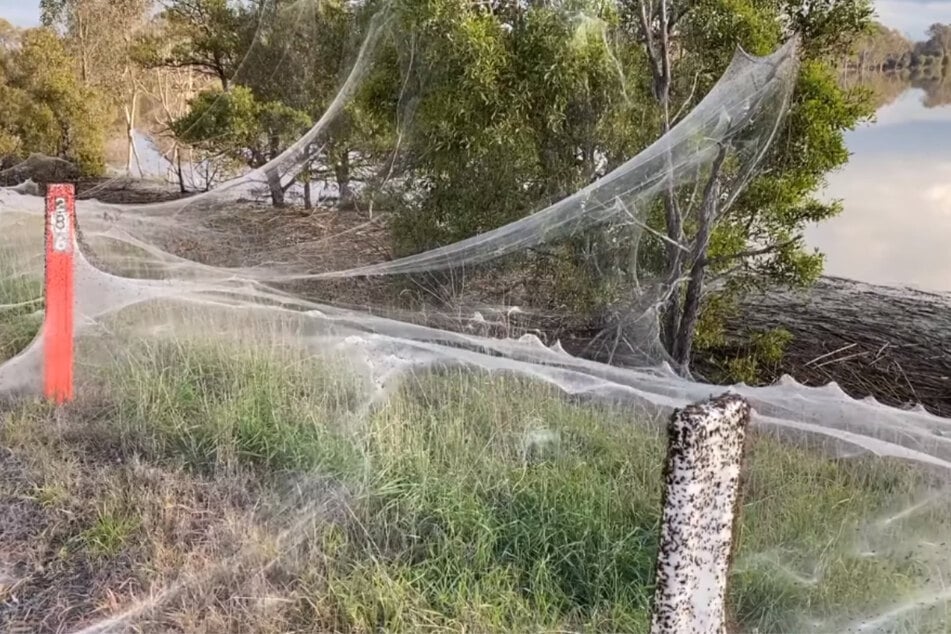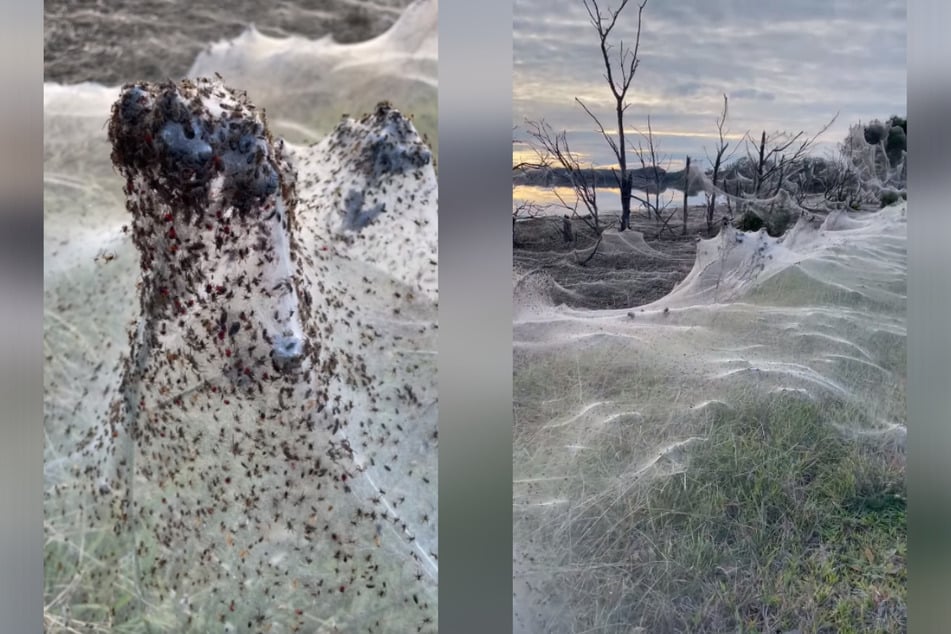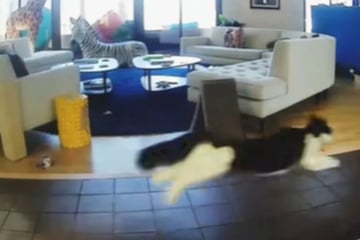All tangled up: Flooding in Australia leaves entire areas covered in huge spider webs!
Traralgon, Australia - It's a grisly spectacle that you'd only expect in Australia: after intense flooding in the south, huge grassy areas, trees, and road signs were left covered in a blanket of spider webs.

For those who aren't arachnophobic, the sight of the thousands of spider's handiwork gently swaying in the wind can be genuinely beautiful and calming.
To protect themselves from the incoming streams of water, they created their own sea of webs that kept them safe above ground.
Locals in Traralgon in the Australian state of Victoria were left astonished by a natural phenomenon that tends to be rare even in the home of weird wildlife. The entire spider population now seems to have moved up a floor, to the trees, road signs, and tall grass.
"It’s just incredible, when they blow in the winds they look like waves," local Jena Beatson told the Guardian. "It does look creepy the way it covers all the signs and everything. You can’t really see it in the photos but there are spiders all over. It’s like thousands and thousands of spiders."
Natural spectacle: Giant spider webs sway gently in the wind
Sea of cobwebs attracts a lot of onlookers

"Spiders can make a wide range of different silks and one of the silks they use for this behavior – ballooning – it’s a very, very thin little silk that they use … to fly away with the breeze," explained Dr. Ken Walker, senior curator of entomology at Melbourne Museum, in an interview with the Guardian.
The arachnids used "ballooning" to create what Dr. Walker called "lasso," which secured them on higher ground during the flooding.
For what it's worth, there's really no need to be afraid of the millions of little creepy crawlers: there are no highly poisonous specimens among them, and their bites will at most cause a local irritation.
The fascinating silk blankets won't last long, though. "These threads are so thin, usually as soon as the first breeze comes along, they get quickly broken up and dispersed," Dr. Walker added.
Cover photo: Screenshot Facebook/Carolyn Crossley/Lotje McDonald

